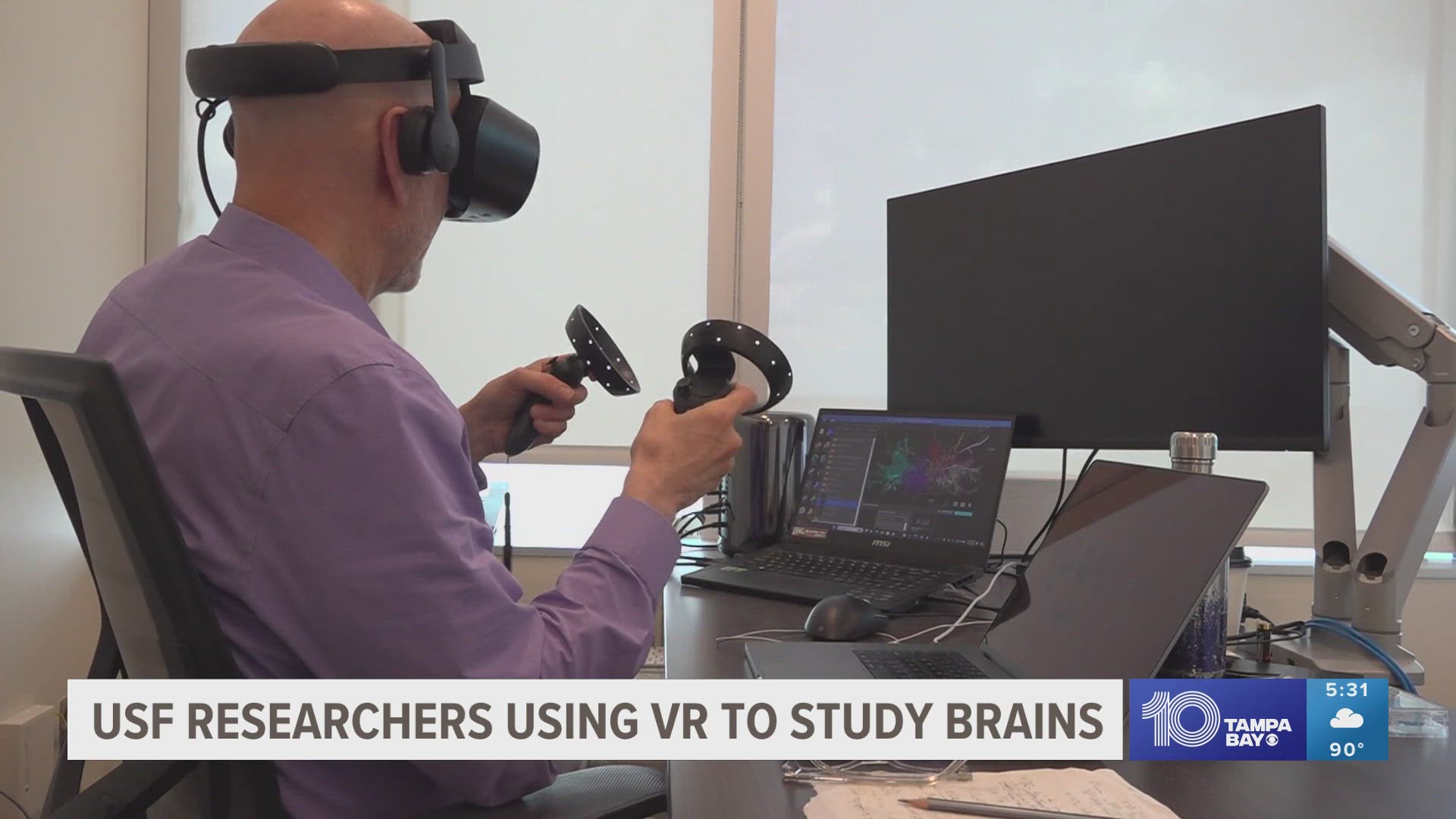TAMPA, Fla. — Researchers at USF in Tampa are using virtual reality to study brain activity, specifically how brains are developed. It's work they hope will have an impact on the health of future generations.
Dr. George Spirou, a Professor in the Department of Medical Engineering, said the headset and hand-held devices they use are not unlike those used by video gamers.
"When I press down on that trigger, now I've grabbed the data and I can turn it and look at it from any perspective," Spirou explained.
The technique brings new meaning to "diving into your research."
"I can move around inside of the data and really zoom in and explore these structures in their 3-D environment," Spirou said. "There are speakers that go into the ears because in the software I can meet other people around the same data and we can talk to each other."
Spirou and his team of research assistants are the first to use virtual reality to study brain patterns.
They're studying mice brains to learn more about how our brains are formed.
"The self-assembly of a brain is mysterious, it's complex. It's, you know, seemingly a miraculous kind of event," Spirou explained. "In a human brain, there's an estimated 86 billion neurons, and each of those neurons forms, on average, maybe a thousand connections. So now you have 86 trillion connections. How did so many connections form and form appropriately so that you have a normal functioning brain? Just the complexity is overwhelming."
He believes a greater understanding of a healthy brain, captured through their research, could one day be the key to detecting abnormalities in the brain and even reversing brain damage.
"If you know how the system formed in the first place, then the idea is that you can get it to reform," Spirou said. "And that would be the idea, that you could then intervene in an already-formed by damaged brain, and get it to retrain and regrow in an appropriate way."
In addition to studying brain damage, Spirou believes their findings could one day be used to have a better understanding of developmental disorders such as autism.
Their research is funded by a $3.3 million grant from the National Institutes of Health.

